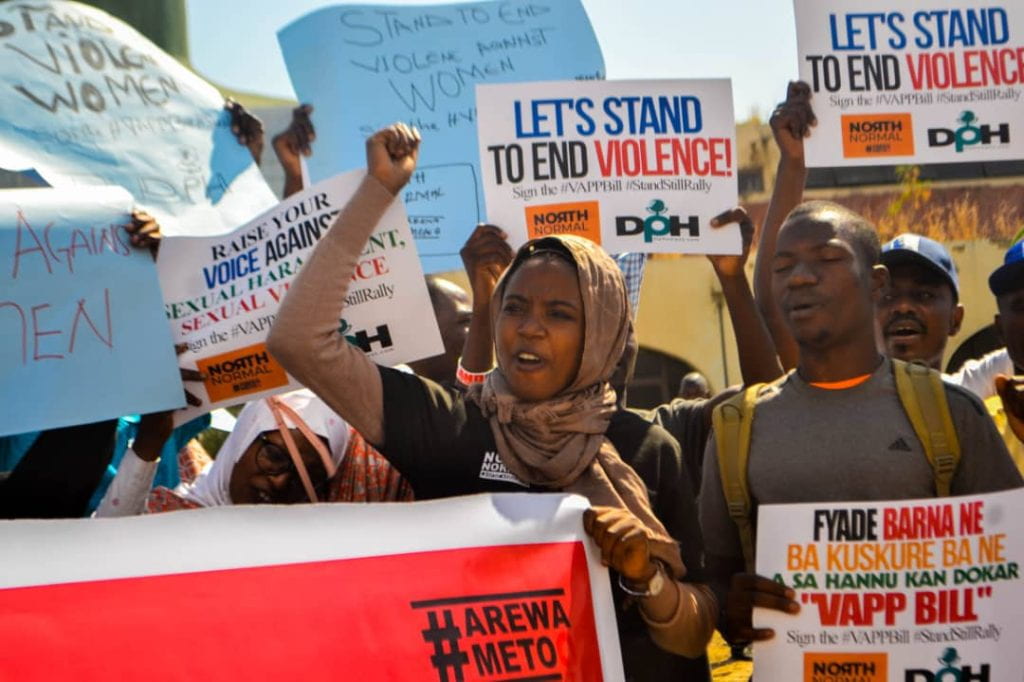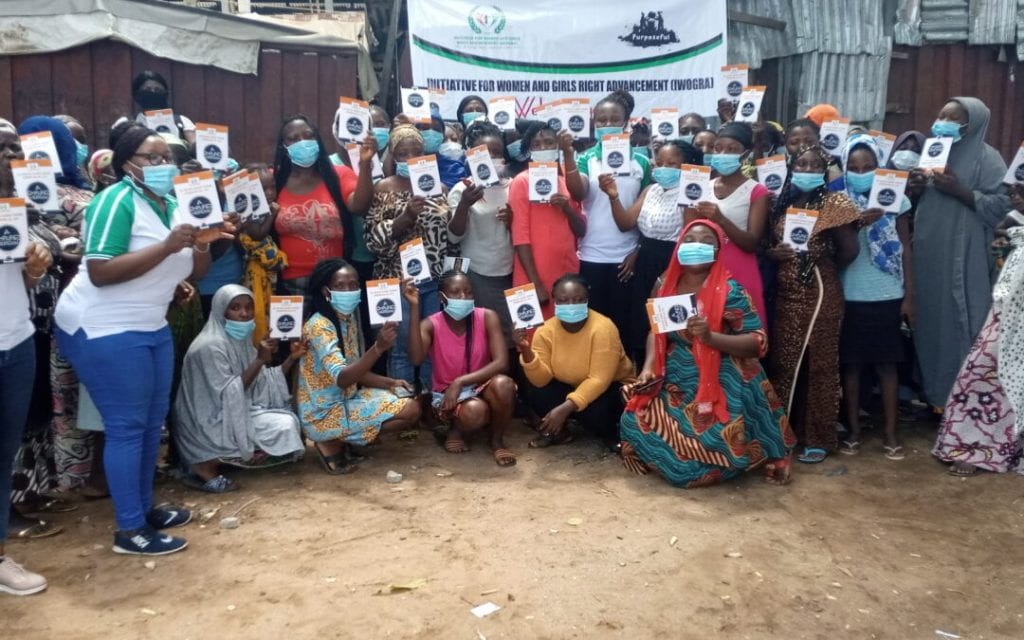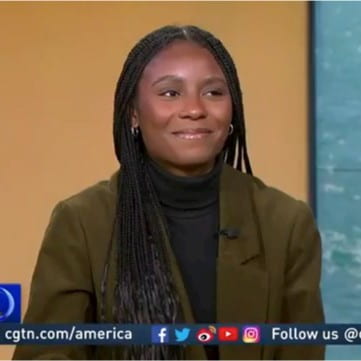This post is a guest blog from Temi Ibirogba, Africa Political Economist.

Three years ago, Nigerian Twitter feeds were flooded with #AweraMeToo. “Awera” is a Hausa word that means “the North” and is generally used to refer to the northern part of the country, a region heavily dominated by conservative Islamic religion and culture. The region’s societal dynamics have made it incredibly difficult for survivors to come forward with their experiences of sexual and gender-based violence (SGBV). The fear of shame paired with a lack of justice was enough to make survivors second-guess whether sharing their experiences was worth the repercussions, but the willingness to speak out prevailed.
The efforts of female Nigerian activists as early as the 1940s created spaces for Nigerian women to protest against injustices in the country. This was realized in 2019 with #ArewaMeToo, and again in 2020 when numerous cases of SGBV went viral on social media.

2020: Viral Cases of SGBV
2020 was seen as a year of protest globally, the death of George Floyd created a ripple effect of online social activism around the world. If you were tuned into Nigerian social media at the time you would have seen #JusticeforJennifer, #JusticeforTina, and #JusticeforUwa. These names represent the dire state of equality for women in Nigeria.
In April 2020, 18-year-old Jennifer was attacked and raped by five men in Kaduna. Around a month later, 16-year-old Tina Ezekwe was shot and killed by a stray bullet while a police officer was harassing her bus driver. Four days later, 22-year-old Vera Uwaila Omozuwa “Uwa,” died of her injuries after being brutally raped and beaten to death while she was reading in her church. What happened to Jennifer, Tina and Uwa represents a larger issue of SGBV in Nigeria. These cases led to activists protesting the alarming rates of SGBV and government inaction. Following these incidents, Amnesty International Nigeria demanded that President Muhammadu Buhari declare “rape a national crisis.”

Outcomes, Justice, and Accountability
The lack of justice for these survivors in 2020, and to this day, is appalling. Little is known about any charges being brought against Jennifer’s attackers, and the incident was not covered by reliable Nigerian press outlets. In the case of Tina Ezekwe, the Lagos State Police Command stated that the conduct of two of their police officers fell short of professional standards and an in-depth investigation into her killing was ordered. This investigation led to the officers’ arrests and internal disciplinary hearings, but little information has been released about the outcome of these procedures two years later. Similarly, the case of Uwa Omozuwa remains largely inactive. All three cases highlight a lack of accountability in Nigeria for perpetrators of SGBV against women.
Activists continue to face backlash and threats in the North for their work towards gender equality. Policies like the Violence Against Persons (Prohibition) or VAPP Act enacted in 2015 seeks to “prohibit[] all forms of violence against persons in private and public life, and provide[] maximum protection and effective remedies for survivors and punishment of offenders.” However, as of March 2022, only 19 states and Federal Capital Territory (Abuja) have domesticated the VAPP Act and only five Houses of Assemblies have passed the act.
Even while Nigerian women have championed activism and advocacy over the past few years, the Nigerian government at the local and federal level are still failing in the fight for gender equality.
Today’s Challenges: Feminist Coalition and Gender Equality Bills
A year after #AweraMeToo, another viral hashtag took over Nigerian social media feeds. #EndSARS called for the disbandment of the Special Anti-Robbery Squad (SARS), a police unit guilty of gross human rights violations. Around the same time, the Feminist Coalition rose to prominence, the group was formed in July 2020 “with a mission to champion equality for women in Nigerian society with a core focus on education, financial freedom, and representation in public office.” This year their mission became harder after the Nigerian National Assembly rejected five bills in March that challenged widespread gender inequality, including establishing quotas for women in government. As of 2019, women made up less than six percent of Nigeria’s parliament according to the International Parliamentary Union.
Once again, Nigerian women’s rights activists protested and this opposition led the Nigerian lower legislative chamber to partially rescind their decision to throw out the five gender equality bills, a win for women. This small victory is a reminder of how far Nigeria has to go to accomplish true gender equality. Modern Nigerian women continue to prove that they are pillars of change in the country just like the pioneers that came before them. However, the small victories we covered are not enough, and simply put the onus on Nigerian citizens to create change without actionable policy from the government.
The example set by the Feminist Coalition during the #EndSARS protests continues to have an impact around the world. I personally experienced the effects of their hard work during protests I attended in Washington D.C. and New York. These trailblazers demonstrated the resilience of Nigerian women despite oppression from their government, and the example they set will continue to be impactful for those fighting for gender equality.

Temi Ibirogba is an Africa political economist based in Washington, D.C. Ms. Ibirogba holds a Master of Science degree from the London School of Economics and Political Science (LSE) in the Theory and History of International Relations. Before attending LSE, she received her Bachelor’s degree in Politics on an International Relations track from Newcastle University. She is interested in political, economic and social issues in Nigeria and Africa and using creative mediums to discuss African affairs and creative culture. Temi also holds a senior editorial role at The Republic, a journal of Nigerian and African affairs and has previously worked at the Center for International Policy and the LSE Firoz Lalji Research Centre for Africa.


Be First to Comment